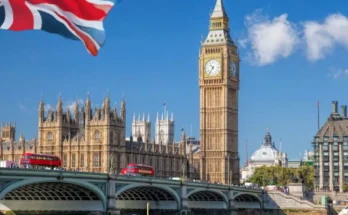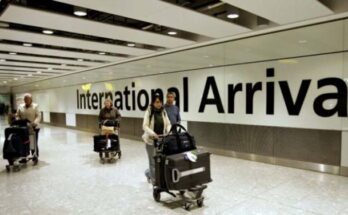Australia has implemented a significant increase in student visa application fees, raising them from $710 to $1,600 effective today, July 1, 2024.
This 225% hike makes Australia the most expensive country for student visa applications, surpassing the costs in the United States and Canada, which are approximately US$185 and C$150 (US$110), respectively.
The Australian government has introduced this measure as part of its broader strategy to manage record-high migration levels that have exacerbated pressure on the housing market.
Some context
International education is a critical sector for Australia, contributing $36.4 billion to the economy in the 2022-2023 financial year.
However, the government is taking steps to ensure the sustainability of this sector while addressing the challenges posed by high migration numbers.
The new visa fee is one of several measures aimed at balancing the influx of international students with the country’s capacity to accommodate them.
Visitor visa holders and students on temporary graduate visas are now prohibited from applying for student visas while onshore. This move is intended to tighten regulations and prevent abuse of the visa system.
What to know
The fee increase also includes additional charges for accompanying applicants. Each accompanying family member aged 18 and over will now incur a fee of $1,445, while those under 18 will be charged $390. This policy aims to manage the financial implications of supporting dependents during the study period.
Moreover, the government has raised the minimum funding requirements for international students. As of May 10, 2024, applicants must demonstrate funds of at least $29,710, a 21 % increase from the previous amount of $24,505.
This new threshold is approximately $5,000 higher than what is required for a Canadian study permit application. The government asserts that this increase aligns with 75 per cent of the national minimum wage, ensuring that students have sufficient financial support during their stay.
The Australian government has also announced measures to close loopholes in visa regulations that allowed international students to overstay their visas.
This decision comes in response to a significant rise in students on second or subsequent student visas, with numbers exceeding 150,000 in the 2022-2023 period. The government aims to reduce this trend by implementing stricter regulations and enforcement.
Nairametrics previously reported that the Deputy High Commissioner of Australia at the Australian High Commission, Matthew Mechan disclosed that over 10,000 Nigerian students were granted admission to Australian universities between 2015 and 2019.
What we know
Clare O’Neil, the Australian Minister for Home Affairs and Cyber Security, emphasized that the changes are designed to restore integrity to the international education system and create a fairer, more manageable migration framework.
The measures are part of a broader effort to ensure that the benefits of international education are balanced with the country’s capacity to sustain high levels of immigration.
As the sector adjusts to these significant changes, the impact on the international student market and Australia’s economy will be closely monitored.
The government’s actions aim to ensure that the benefits of international education continue while maintaining a sustainable and fair migration system.
The coming months will reveal whether these measures successfully balance the needs of students, educational institutions, and the broader Australian community.



